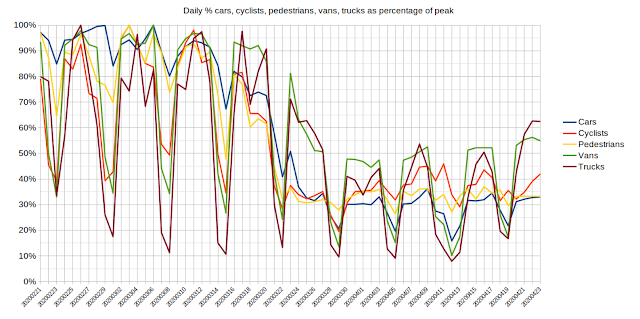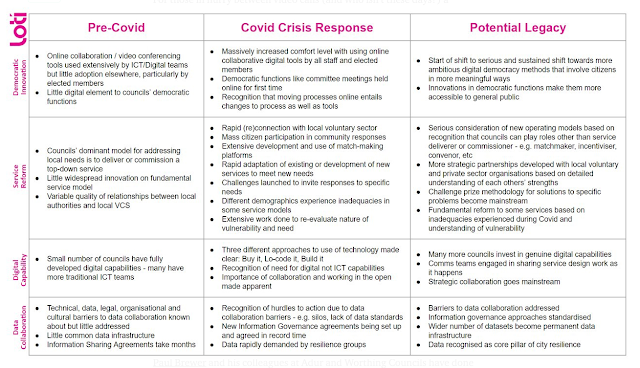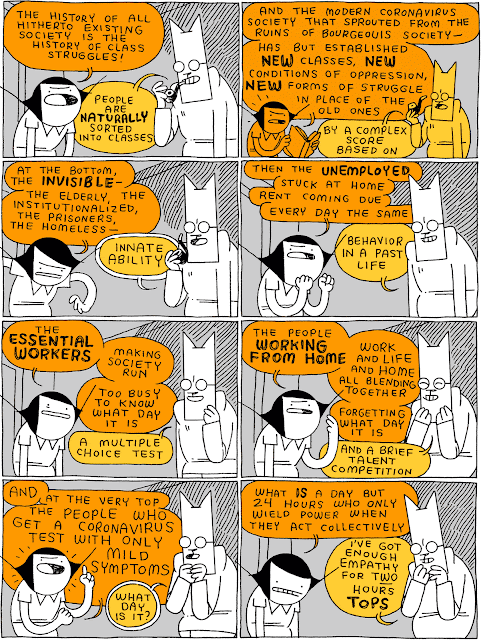Weeknotes: resilience, urban manufacturing, co-op investment, video calls

Ian Lewis, who in normal times occupies the office next to mine at the Computer Lab , works on SmartCAMBRIDGE and so has access to fascinating data about how things have changed since early 2020 in the city: https://www.cl.cam.ac.uk/~ijl20/cambridge_lockdown.html Dave Birch wonders whether this might be an opportunity to build an appropriate digital identity infrastructure . There are four categories of pandemic response digital tool: three from the Economist, and one more: The first is documentation: using technology to say where people are, where they have been or what their disease status is. The second is modelling: gathering data which help explain how the disease spreads. The third is contact tracing: identifying people who have had contact with others known to be infected. ... A fourth category... demonstrating that people have the COVID-19 antibodies and are thus no longer susceptible to infection. It's a good outline including some of the social and ethical c...

